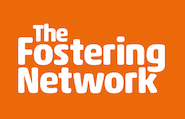
What is Mockingbird?

Mockingbird, a global award-winning and pioneering programme led by The Fostering Network in the UK, delivers sustainable foster care. It is an evidence-based model structured around the support and relationships an extended family provides. The model nurtures the relationships between children, young people and foster families supporting them to build a resilient and caring community. Led by a hub home carer and liaison worker, the constellation community offers vital peer support and guidance alongside social activities and sleepovers to strengthen relationships and permanence.
Launching the Mockingbird programme in Devon
Since the beginning of 2022, Devon Fostering Service has been working alongside the Fostering Network planning Devon’s Mockingbird Pilot and we are delighted to announce the launch of Devon’s first Mockingbird constellation in south Devon.

Devon’s Mockingbird Pilot is funded by the Department for Education’s (DfE) COVID-19 Regional Recovery and Building Back Better Fund. The Mockingbird Pilot project forms part of the Restorative Devon Programme embedding restorative practice across Devon Children’s Services by building strong, meaningful, trusting and respectful ‘relationships’ and repairing relationships when difficulties or harm arises.
We also have further constellations planned to launch in 2023 and beyond.
What do we hope to achieve by implementing Mockingbird?
The implementation of Mockingbird is expected to improve outcomes for children and young people by:
- improving placement stability – reduced placement breakdown because carers have a network of support
- decreasing the number of young people placed in residential care or independent fostering agencies
- increasing the number of young people enabled to live locally
- improving contact between separated siblings
- improving the process and experience of sleepovers rather than provision of respite care
- improving skills, confidence and role satisfaction for foster carers
- improving levels of carer retention and recruitment
What makes a home hub carer? Meet Sarah a hub home carer from Devon
Sarah, a home hub carer in Devon, tells us how she got into fostering and what her role as a hub home carer requires.
How did your fostering journey begin?
As a former primary school teacher, I always had a passion working with children alongside their parents, with complex and challenging needs. Teaching children who were in care, fuelled my ambition to foster. Fostering had always been something my husband and I talked about doing in the future, but family circumstances had never been quite right.
I remember the day I spoke to him about leaving the teaching profession to follow my desire to foster. It followed a meeting after school with students and parents ahead of a residential I was taking my class on. One of the children in my class fostered with their parents. In came this gorgeous, smiley fostered baby, who I got to cuddle for the entire evening. I spent a long time afterwards with the foster carer. We talked together about their fostering experiences. They even came to talk to my family at my home about it and from that moment, I knew we were ready for this exciting challenge.
Why did you apply to become the hub home carer?
Once I saw a presentation about Mockingbird and I immediately got that sense that this was an exciting opportunity. I recognised the need for this model within the fostering service. Afterwards I spent time reading and watching videos about Mockingbird to gain a better understanding of how it worked. I had lengthy discussions my family and our supervising social worker about the programme. We felt that the role of the hub home carer offered the hybrid between fostering and using my professional skills. Plus, I could see a connection with my experience of working with children with special educational needs and disabilities and previously supporting and mentoring newly qualified teachers and approved foster carers. It felt like becoming a hub home carer would give me the new challenge that I was seeking within fostering.
What do you think the hub home carer role requires?
The hub home carer role requires being a role model for good practice. They need to be able to communicate sensitive information in an empathic manner and remain non-judgmental. They also need to build trusting relationships with all parts of the constellation and remain child centred. Plus, it helps to be organised to ensure the smooth calm functioning of the constellation. Flexibility is key and it helps if you can offer a warm friendly and welcoming home environment for all which will put people at ease.
What aspects of being a foster carer makes you the happiest?
The greatest part of being a foster carer is making a difference to the life of every child we have been blessed to have in our care unconditionally. It makes me happy to watch them thrive, grow and develop, exceed expectations; overcome trauma related behaviours; experience firsts and watch them flourish.
Contact us
If you have any further questions about Mockingbird, please contact Sarah Farquharson, Mockingbird Liaison worker by email at sarah.farquharson@devon.gov.uk.
You can also find out more about the Mockingbird Programme on the Fostering Network website.